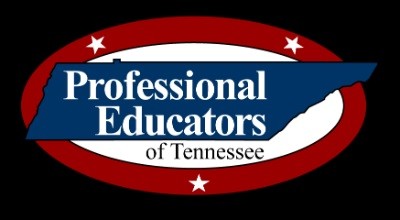Nashville, TN - Every October, educators across the state have the opportunity to participate in a process known as “Collaborative Conferencing [ https://www.proedtn.org/page/C
Enacted by the Tennessee General Assembly in 2011, the PECCA (Public Chapter 378) [ https://publications.tnsosfile
Topics Permitted for Discussion:
• Salaries and wages
• Grievance procedures
• Insurance
• Fringe benefits (excluding pensions or retirement plans related to the Tennessee consolidated retirement system or locally authorized early retirement incentives)
• Working conditions (except those dictated by federal or state laws, municipal charters, or regulations from the State Board of Education or other governmental agencies)
• Leave
• Payroll deductions (excluding funds for political activities)
Prohibited Topics Include:
• Differentiated pay plans and incentive compensation programs based on employee performance
• Use of grants or awards earmarked for specific purposes
• Evaluation processes of professional employees mandated by federal or state laws or State Board of Education policies
• Staffing decisions and related policies regarding innovative educational programs
• Personnel decisions concerning assignments, transfers, layoffs, and recalls based on tenure or length of service
• Payroll deductions for political activities
In today’s landscape, imposing limits or prohibitions may hinder local districts, educators, students, and stakeholders from addressing emerging issues effectively. While the PECCA has proved disappointing in some respects, there is a desire to discuss matters beyond its current scope, including differentiated pay plans, grant expenditures, evaluations, staffing decisions, school safety, and curricula.
Many educators recognize the shortcomings of the system: while salaries can be discussed, topics like differentiated pay plans and incentive programs cannot. This raises the question: why discuss salaries at all when they are largely predetermined with minimal room for negotiation? This limitation may explain the reluctance of many districts and educators to engage in Collaborative Conferencing.
Currently, school boards across the state hold the authority to determine terms and conditions through board policy. Thus, while they must engage in conferencing if professional employees vote to do so, PECCA does not mandate that the board must agree to any terms or enter into a memorandum of understanding if consensus is not reached. This underscores the importance of maintaining open lines of communication.
If you are part of a system preparing for an upcoming PECCA election and would like assistance in mobilizing voters, please reach out to Member Services Coordinator Kaylee Joslyn [ mailto:kaylee.joslyn@proedtn.o





